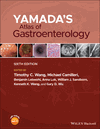Parasitic diseases: protozoa
Summary
Intestinal protozoan parasites are important causes of diarrheal illness worldwide. Infection with Entamoeba histolytica , the causative agent of amebic dysentery and amebic liver abscess, is primarily a disease of lower- and middle-income countries (LMICs), whereas infections caused by Giardia lamblia , Cryptosporidium parvum , and Cyclospora cayetanensis pose serious threats to public health around the world. Improved sanitation conditions have greatly reduced the number of cases of amebiasis in the United States. Blastocystis hominis is one of the protozoan organisms most frequently detected in stools. Parasites from the genera Cryptosporidium , Cyclospora , and Cystoisospora have emerged not only as important gastrointestinal protozoan pathogens among immunocompromised hosts but also as causative agents of diarrhea among immunocompetent individuals. Stool antigen testing is widely available for the detection of Cryptosporidium . Detection of Cyclospora , and Cystoisospora infection is more challenging.



